************************************
Well, it seems that our friend Satan, er Zlatan, has nothing better to do than claim that he and I are having a "debate" (we aren't), and to attempt to "fisk" me by posting my comments that have been in response to his in the "(not so) Loyal Opposition" thread. Of course, he handily edits mine in at least one case to make it say what he wants it to say, then takes and does a whole bunch of schizophrenic "translations" (evidently he has learned well from the "Master"-no not The Doctor's enemy, but rather "La Gorin") of what I actually and quite clearly said on the others. I love guys like him....the fact that they have "more balls than brains", and hence continiously keep shooting themselves in the foot, tends to make my job easier. :D
For your enjoyment (and so you won't accidently boost his visitor counter any higher), I've opted to post his attempted "fisking" here. It's the weekend....you deserve a good laugh!
Saturday, September 1, 2007
Analysing An Albanian Author
Since my high school days I have used public debates to show (the people interested in the topic at hand) what my oppositions true agenda is. Unfortunately the person who I am about to analyse is somewhat clumsy at hiding his agenda (or his sheer contempt) as some of my teachers and (debating) opponents; he does nonetheless express what most peoples’ opinions on Serbs and Serb related topics. I also must apologise to those of my readers who are sick and tired of hearing about our Albanian friend here but he must be exposed for the Serbophobe he is.
The debate can be found here.
I find it interesting that you claim to have used "public debates" to show what your opposition's "true agenda" is. It's a very poor debater indeed who must rely upon distorting their opponent's words to begin with, and an even poorer one who claims they are uncovering their "true agenda", when both by their words and actions they have "put it all out on the table", so to speak, from the beginning.
I think I got your point with the post about Weird Al just fine. Care to have me translate it? Though I wouldn't necessarily bet a month's wages on it, I'll bet your point, without too much reading between the lines, goes something like this: "Weird Al, being the son of a Serb immigrant, would have been taught by his father instinctively about Albanians, what they are, what they're like, etc., and so when the appropriate time came, he decided to work some of this knowledge into the lyrics of one of his songs". (So, how close was I? Pretty damn close, I'll bet.)
Translation: It is obvious to me that Serbs teach their children to hate other ethnic minorities even though I do not know anything about Serb culture or the mainstream religion that is prevalent within the Serb culture; if I did then I would know that it is against Serb mentality to hate someone because of their ethnicity.
Well, actually, I probably know more about Serbian culture (both the "normal" kind and the National(Social)ist pseudo-culture) than you think for (or want to admit), to say nothing of human nature to begin with. If anything, I get the impression that it is you, sir, who instead knows nothing (or at least nothing accurate) of Albanians, Kosovar or otherwise. But given your positions, to say nothing of your general disingenousness when dealing with those who do not "see the light" (or rather your light, which may in fact be all part and parcel of your holding those positions), that is not surprising.
I find it interesting that you indirectly accuse me of generalising about Serbs, then you go on to do the same thing yourself (albeit with a positive slant). And to be honest, I'm sure there are a great many Serbs who do not teach their children "the old hates"-Serbs who are looking towards the future, not attempting to recreate a dead past (that may never have really existed to begin with). But I am even more sure that, contrary to what you say, that there are Serbs who do teach their children hate for those of other ethnicities. Indeed, how can it be otherwise, when they have held up to them as "heroes" people like Njegos, Seslj, Plavsic, and so forth? And you speak of "Serb mentality". Sadly, the "Serb mentality" I see far more often is the mentality of those aforementioned personalities, as opposed to people trying to make a positive change for the future, like Natasa Kandic.
As to your church, it is only "mainstream" in the sense that Eastern Orthodoxy in general is considered "mainstream". (For many years I was involved in interfaith dialogue on a local level as well as in amateur press publications, and a great deal of my personal library is devoted to the topic of religion, both Christian and otherwise. Add to that the fact that I have several friends and acquanitances that are EO, including clergy, and I think that maybe, just maybe, I know a little something about the subject.) And as to what it officially preaches as doctrine, the Serbian Orthodox Church seems to be in line with all other churches aligned with the Bishop of Constantinople. But as far as practice goes, and what Serbian Orthodox believers have been instructed and/or influenced to believe, that is a different story. From the priest Njegos, to Velirimovic, to Artimije, what Serb "believers" have been encouraged to believe about being a Christian with regard to one's "neighbors" (which often as not seems to also equate with one's "enemies"), appears to be far different from anything to be found in the teachings of Christ, or even St. Paul.
Now as to what you said in that post....OMG, you must really take people for idiots, don't you? I mean, do you hold your position that mindlessly? Or are you just very disingenous? (Or both?) Unless you're redefining ALL Albanians as members of UÇK automatically by virtue of being Albanian, then your comment is utterly ridiculous. Every one of the blogs and sites I've cited constantly and consistantly slams the Albanian people AS A PEOPLE (i.e. AS A WHOLE). Especially the "Oh-So-Godly Christian" Svetlana Novko. The only one who hasn't, I'll grant, is La Julia, but then again, on the VERY rare occasions when she has had anything "positive" to say about anyone who's Albanian (like her post on "MJAFT!"), she shows her true colors by making it clear that her "compliments" are ultimately of the "left-handed" sort. So please, go pull someone's leg somewhere else, Zlatan-it won't work here.
Translation: You talked about ‘Albanian National( Social)ists’ so I naturally assumed that you were talking about all Albanians.
Nice try, Zlatan. Just too bad you had to "edit" my comment in order to make a point that clearly has nothing to do with what I actually said (not that that seems to be unusual for you).
What I originally said, as was clear in my comments, was that you had claimed in a post that you made in my old blog
not talking about "Albanian National(Social)ists", you were talking about my Anti-Albanian blog list on my old blog. You were claiming that the sites only dealt with the KLA. I stated basically that you're full of it. The blog is still there-and all of those links and more can be found here on this site. Let the visitors to this site decide who is right.
As to your harping about Albanian Nationalism, sir, and why I'm not spending time on this blog engaging in condemnations of it, I have an answer I am preparing for you, but in case it hadn't occurred to you, as important as this blog is to me, it is NOT my life. Believe it or not, I actually have nice, normal, boring everyday stuff like job, family, etc. that has to come first. I don't live my life around this blog. And I will post my responses when they are good and ready to be posted-on MY schedule, sir, NOT YOURS.
Translation: I am concerned that someone is not surrendering to my ‘infinite knowledge’ so I shall now claim that I have a family and a job while you are nothing but a bum with internet connection who has devoted his life to internet blogging… that’s right; your goals are not to gain a bachelor's degree in medicine but to blog.
Oooohhh....nice ad hominem there, Zlatan! Again, the actual context, which you convieniently edited out, was about my having not yet answered at the time your question as to why I had not explained why I lump Kostunica in with Karadzic, Mladic, Seslj, Nikolic, etc. I told you why, in very plain, open words. It was you who then, among other things: Made some sort of non-sequiter comment about "someone (you) not surrendering to my 'infinite knowledge'" (which I have never claimed to have, and is a completely irrational, to say nothing of borderline schizoid, accusation to make-I do not hide or try to "buy time" because of someone challenging me on my statements or the evidence I give), then went on to make insinuations that I'm a liar, and am hiding behind some sort of evidently ficticious home and work life, and on top of that, that I accused you of being a bum who has nothing better to do than blog. IMO, only a paranoid, schizoid personality would earnestly draw all that out of my original comment to you. If anything, it appears that you are trying to infer quite the reverse: By pointing out (or perhaps trying to impress people) that you're currently going for a medical degree, as well as insinuating that my claims of the everyday, normal responsibilities of most people coming first in my life before blogging are a prevarication , it seems that you are trying to insinuate that it is I who am a "blogging slacker", or some such nonsense.
First, I am not convinced that all crimes committed against Serbs in Kosova (and no, I will NOT call it by YOUR name for it, sir-though if it bothers you so much, I will be more than happy to refer to the area in the future by it's ancient name: DARDANIA) are committed by Albanians. The evidence in many cases is somewhat lacking to make such an assumption (of course, I am using American standards of what constitutes "reasonable suspicion", though I believe they are the same in Australia as well), IMO.
Translation: I am grateful to the ‘Kosova’ Police for their incompetence (or there lack of will) concerning the investigations into the crimes against non-Albanian minorities and Albanian loyalists; for it has given me the opportunity to say that just because I cannot find a pro-KLA news source stating that that the expulsion of 250,000 non-Albanians and thousands of Albanian loyalists is the fault of former KLA members then it is not happening.
Well, evidently to you, any "news source" that does not outright support with no objective evidence to back it up claims by those of a Serbian National(Social)ist bent that a given crime was ethnically/religiously/"hate" motivated, and/or part of some grand scheme on the part of all the Albanians of Kosova to cleanse the area of non-Muslim non-Albanians is "pro-KLA". How nice. And given the history of the last 95 years, since the First Balkan War, why on earth would any Albanian ever want to be "loyal" to Belgrade anymore? Belgrade sure as heck hasn't proven to be very loyal to them as citizens (or demi-citizens, more like).
As to those 250,000 plus "non-Albanians" that you claim were ethnically cleansed, usually claiming some crap like that the Albanians were allowed to stream back in and have their way with them, while the NATO troops stood there like friends of a bully ringing the bully and his victim to keep others from interfering? Sorry, but objective journalism and reporting are most definitely NOT on your side. Try more like (and this was shown on TV screens around the world, from many different news services-of course, you can try if you like to go scream "MSM! MSM!"-that always seems to help, doesn't it?) that as the Albanians were streaming back in, those 250,000 "non-Albanians" (lets' be honest here: they were mostly Serbs and their allies, the bulk of which were Roma who decided it was better to throw their lot in with the MUP and the paramilitaries than with the Albanians, despite the fact that Belgrade has never had any particularly great love for them either) were streaming out. The two groups were separated by NATO troops, baracades, and vehicles.
Why was it like that? Well, gee, I dunno....I guess if I had stabbed my neighbors in the back by pointing them out to people who wanted to wholesale kill them or at least drive them out, people who maybe had been my neighbors for generations, who I'd actually even maybe claimed to be friends with, and then on top of it took their home, their land, their cattle and claimed it for my own, and then realised that despite what I earlier thought, that they were coming back after all, I tend to think I'd be leaving too! I know I wouldn't be stupid enough to assume that they would come back, embrace me, and say "all is forgiven!"; on the contrary, I'd expect them to be highly pissed off. But then Albanians put a high value on trust; and even more so than most people, they don't like when that trust is betrayed, especially by someone they thought was a friend. And I suspect that most Serbs who live in close proximity with Albanians know this about them. (And no, this in no way justifies "Albanian on Serb" violence, nor have I ever condoned it, not even when someone has done it soley to take back something that is rightfully theirs. But I certainly can say that while not condoning it, and on the contrary condemning it, I have less than no problem understanding the feelings one might have that could eventually, given the right circumstances, lead them to possibly express them in a violent fashion against those who have wronged them.)
Second, even in the cases where one CAN prove conclusively that the criminal act was perpretated by an
Albanian, I'm not sure that the evidence always suggests automatically that what here in America would usually be referred to as a "hate crime" has been committed, just as not all crime by African-Americans on Whites or Whites on African-Americans is automatically racially motivated.
Third, I am not necessarily convinced that even if the first two things can be proven true, that in every event they signify an an attempt, either ORGANISED and IDEOLOGICAL/POLITCAL in nature or not, by Albanians to rid Dardania of it's Serb or other ethnic minorities.
Translation: If 250,000 non-Albanians and thousands of Albanian loyalists are being expelled then it is not because of political or ethnic cleansing that Albanian National( Social)ists are committing but rather they are issues between individual people.
See my comments above to the lie that Albanians personally physically, or with the tacit help of NATO, "ethnically cleansed" those 250,ooo "non-Albanians". Some of the assaults by Albanians on Serbs in the days after the conflict were in fact issues between individuals (see again my comments above). Some were also doubtless "revenge" motivated. Both are still probably the case today in most of the incidents that can be proven to be in fact Albanian on Serb violence. And yes, there is the possibility of Nationalistic motivation in some of the harassment that is allegedly taking place today, though I would still hold that even then, if that is the case, then it is in most instances likely the action of individuals, not some kind of
"highly-organised, political-ideological" entities. There may be some entities who are feeding the hatred of these individuals, but I see no evidence of those assaults, even the "proven" ones, being systematic; not the way that Serb on Albanian violence (where far greater numbers of Albanians were assaulted and/or and killed than is claimed is happening to Serbs today) and harassment was during the period 1989-1999. Now are such assaults wrong? Of course they are, no matter who is committing them. Are they worthy of being condemned? Absolutely. Are they part of an organised, systematic, attempt at ethnic cleansing? If they were, there probably wouldn't be a single "non-Albanian" living anywhere in Kosova today, Mitrovica included. (Of course, the fact that there has been no attempt at any sort of reconciliation mechanism, similar to the "Truth and Reconciliation" committees that were set up in the post-Apartheid South Africa, has not helped matters.) Bottom line, though: Most of the "non-Albanians" claimed to be "ethnically cleansed", basically "cleansed" themselves, by leaving the province instead of facing up to what they did. (BTW, I'd be curious to know why, if as you lot like to say, the Albanians leaving Kosova during the war did so to escape the NATO bombing and not the MUP and paramilitaries, then why did not the Serbs living there do the same? Why did we not hear even from Tanjug any sort of claims for mass exodus of the Serbs living in Kosova during the war?)
Fourth: In the event that there's enough evidence from OBJECTIVE, IMPARTIAL sources to suggest that the criminal act in question had as one of it's primary motivations an attempt to ethnically cleanse from and/or terrorise Serb or other non-Albanians in Dardania, then you can bet your Doc Martens I'll speak up against it, Zlatan. I in fact did speak up against the inflaming of passions in the Albanian community by minor but politically opportunistic groups in Dardania in March 2004, both on moral (such acts do not reflect traditional Albanian values as reflected in the Kanun and other cultural sources), and practical (they also needlessly cast Albanians as a whole in a bad light in the eyes of the rest of the world) grounds.
Translation: I really don’t care about the minorities in Kosovo but rather how the Albanian people look to the rest of the world. I have also just admitted that there are “political opportunistic groups” in Kosovo who are controlling the Albanian community; as such I have destroyed my credibility to claim that there is no organized cleansing of Kosovo. Though if it is mentioned again then I will claim that those “political opportunistic groups” have disappeared even though Serb Churches and Schools continue to be attacked and destroyed by (apparently unproven) former KLA members and other Albanian National( Social)ists.
Actually, I care a great deal for all the people of Kosova, minorities included. I want Kosova to be a safe, modern, democratic European state where all may live in freedom, and with prosperity. But I know that won't happen as long as it is a "limbo state" as it is now, and it sure as hell won't as a part of Serbia, where it would be nothing but a cash cow from the Trepca mines, and a perpetual source of National(Social)ist aggravation.
And I admitted no such thing as "'politically opportunistic groups' are controlling the Albanian community" in Kosova. What I said, clearly and transparently, was that some such groups evidently managed to manipulate some people to engage in negative and destructive action within a certain "crisis" situation, and that in some cases, possibly, some people committing violent acts may be doing so because they have been influenced by their ideological stances, none of which supports any of your assertions of what I've actually "said". And yes, I do in fact deny that there is any systematic attempt at ethnically cleansing "non-Albanians" from Kosova, but that's only for the simple reason that the objective evidence does not support such a conclusion.
But you know something, Zlatan? I'm not about to let you try to hijack this blog, or define the debate. You still have never explained those lovely little passages I posted from your so-called "manifesto", for example. You still have not have not explained the links you provide on your site to Nationalistic (or National(Social)istic, as I prefer to call it) websites, including the Serbian National Front. No sir, I have no intention of giving any further answer to your insane and irrational accusations and attempts to twist my words. You will answer MY charges now, or this so-called "debate" is over.
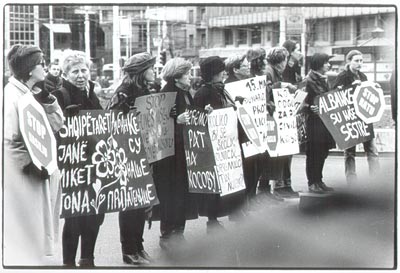
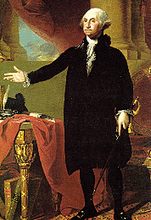
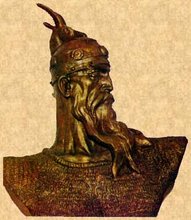
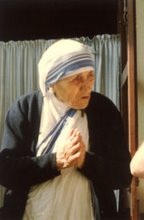







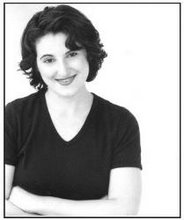
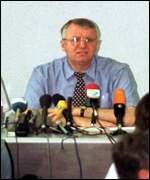









"Those links you have given are not anti-Albanian. They are anti-KLA/UCK."